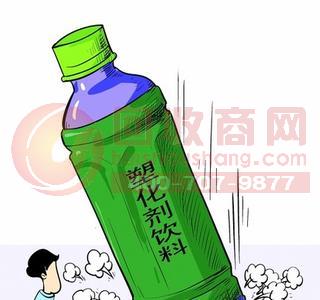Plasticizers are processing aids that are added to plastic polymers to increase the plasticity of plastics. The most commonly used plasticizer is DEHP (phthalic acid diester), which is mainly used in PVC (polyvinyl chloride) plastic products such as plastic wrap, food packaging, toys, catheters, infusion bags and the like. Sun Yixi, a professor at the Institute of Food Research at Taiwan University, once said that the plasticizer DEHP is 20 times more toxic than melamine. Professor Wu Yongning, chief scientist of the food safety project for health research in the Ministry of Health, pointed out that the molecular structure of phthalic acid diester is similar to that of hormones and can mimic the effects of estrogen. It is called “environmental endocrine disruptor†or “environmental femaleâ€. hormone". If long-term consumption may cause abnormalities in the reproductive-endocrine system, including human hormone imbalance and decreased immunity, males become female, causing children's gender disorder, including genital shortening, sexual characteristics are not obvious, induced precocious puberty, and even teratogenic and The risk of carcinogenesis. Wu Yongning emphasized that plasticizers, as the name implies, are processing aids added to increase plasticity and are plastic additives. Therefore, it is not a food material, nor a food additive. It is strictly forbidden to add it directly to food. Since plastic products using plasticizers are common in life, phthalate esters are widely found in air, water, soil, etc., and can be absorbed into the body through the respiratory tract, digestive tract and skin. If there is only a trace amount of plasticizer in the body, there is little risk of harm to the human body and no treatment is needed. Different concentrations of phthalates have indeed been detected in the atmosphere, lakes, rivers and soils of many countries. During the storage of food, trace amounts of plasticizer will migrate from the packaging material to the food, but the migration of qualified plastic packaging materials should not exceed the relevant standards. "According to the lifestyle of modern society, it is almost impossible to completely avoid phthalate esters, but there is no need to be overly nervous, because the risk of plasticizers exposed to normal life can be neglected. Wu Yongning said. In order to reduce the intake of phthalate esters through food, Wu Yongning suggested changing some living habits in daily life. First, when using food containers, if you can use less plastic materials, use high-quality stainless steel, glass and ceramic containers. Secondly, the plastic wrap for preserving food should be selected from materials that do not contain plasticizers, and avoid heating the wrap film and food together at high temperatures, and it is best to use less wrap, plastic bags and oil-resistant paper to pack and hold food. Third, try to avoid cooking oil and oily food in plastic containers or plastic bags. It is better to use hot water, hot soup, tea and coffee. Fourth, use as little plastic container as possible to heat the food in the microwave oven. Because the temperature is quite high when the microwave oven is heated, the oily food will accelerate the dissolution of the plasticizer. Ungrouped,High Quality Ungrouped,Ungrouped Details, CN Jining Juheng Hydraulic Machinery Co., Ltd. , https://www.juheng-cn.com